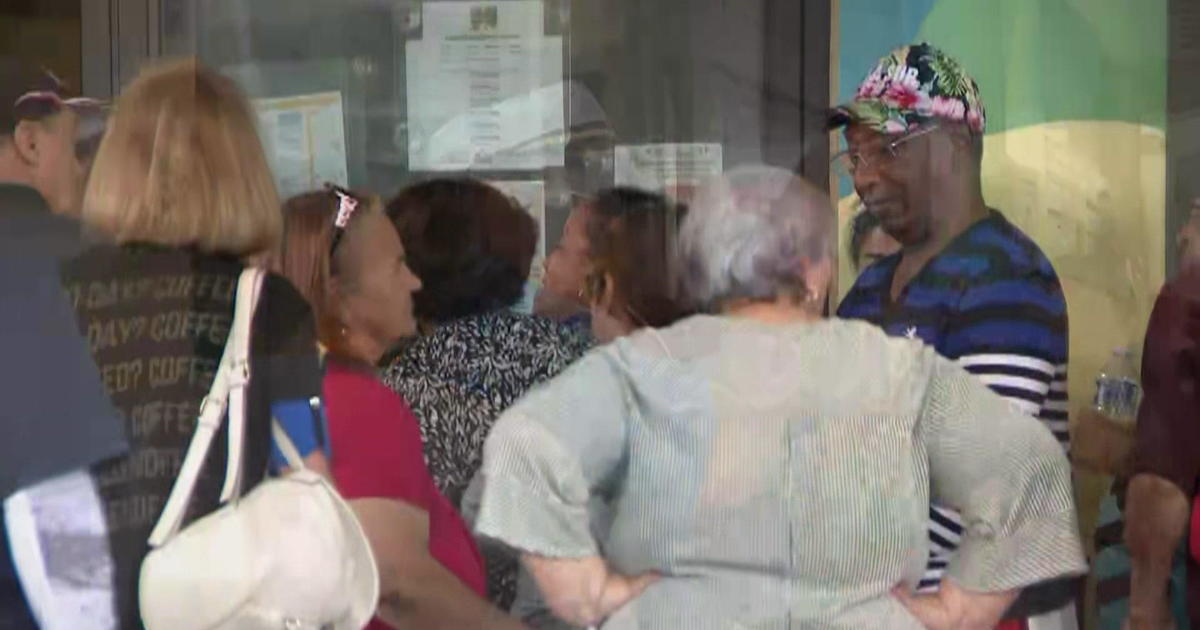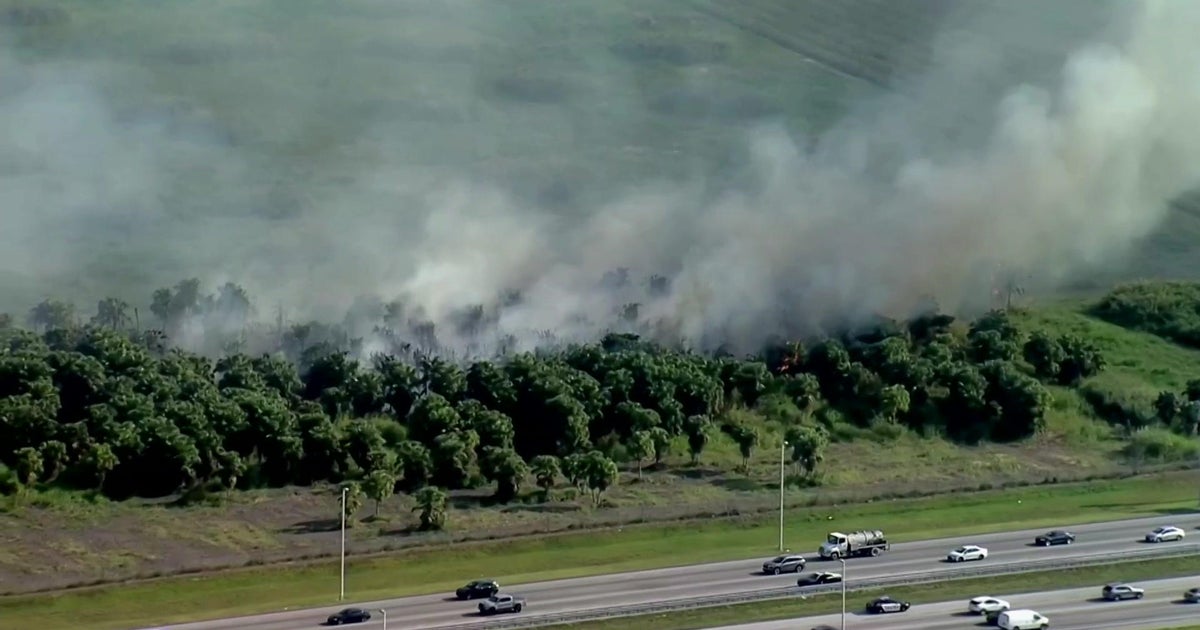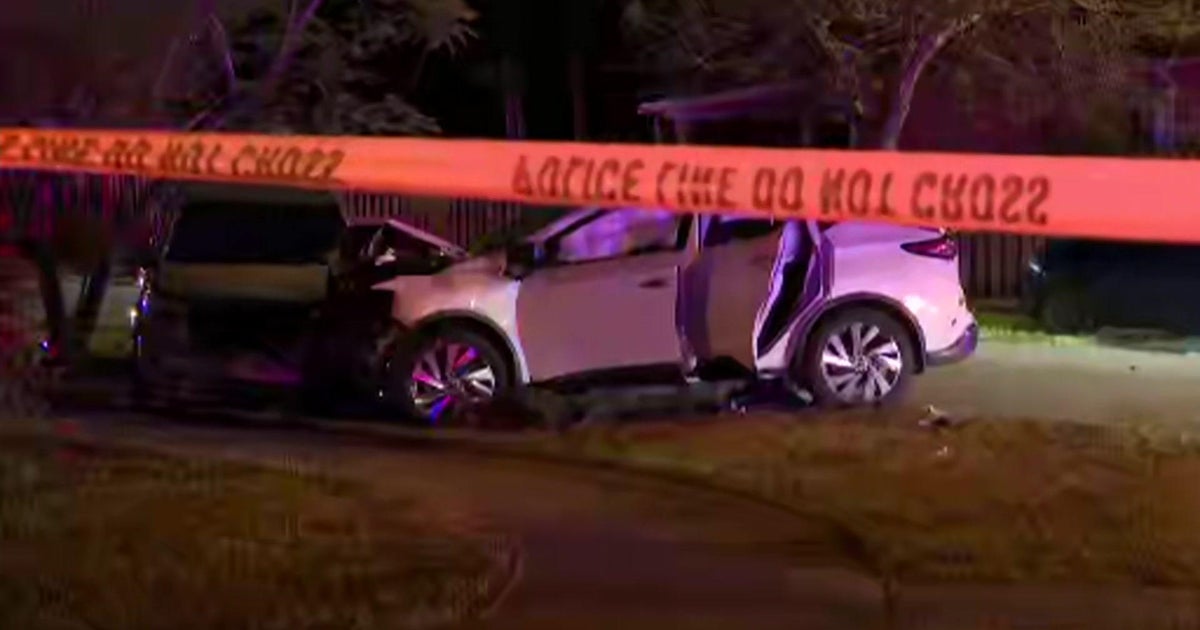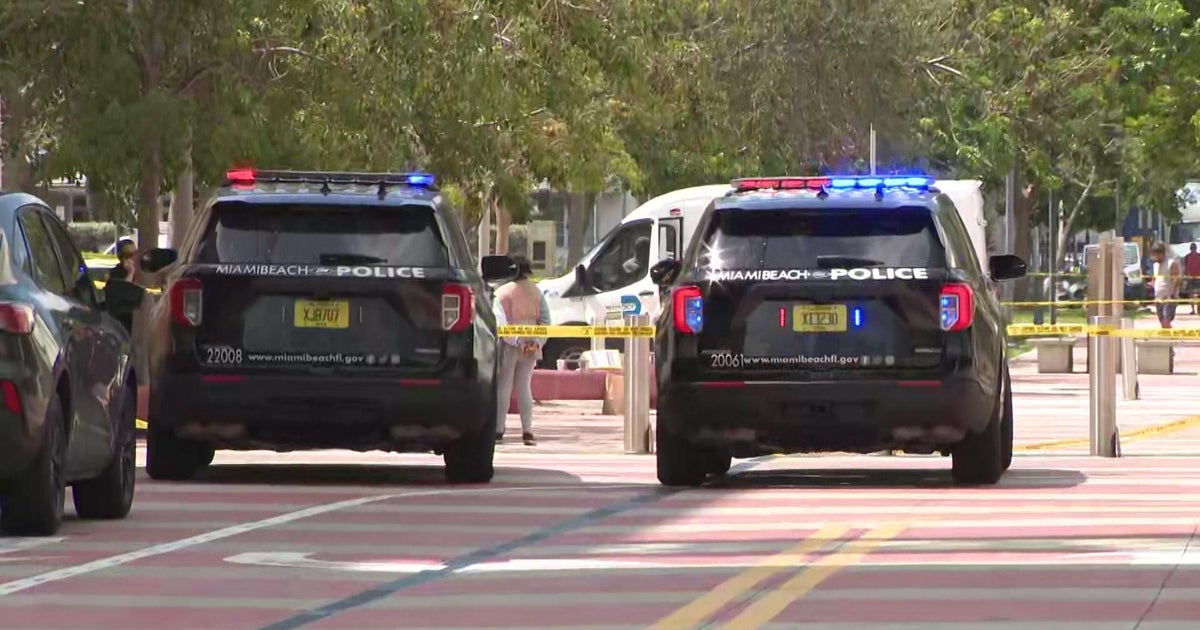S. Fla. Group Alleges Foreclosure Upkeep By Banks Depends On Zip Code
MIAMI (CBS4) - Making her way down the side of a house on NW 65th Street in the Liberty City section of Miami, Keenya Robertson steps over broken glass and around an assortment of garbage. Some of the windows of the duplex are boarded up with plywood. Other windows are left wide open. There is no mail box or Realtor sign out front. And around back the grass is dead and a tree has partially fallen.
"No clean up whatsoever done," she said, shaking her head.
When she makes her way to one of the doors, there is no knob or lock. A slight push easily opens the door revealing an interior that has been vandalized.
The house was foreclosed on in March by Bank of America.
"When you foreclosed on the property it became your property and you have an obligation to maintain it and to get it marketed," Robertson said, "to pick up the trash, to cut the grass, to maintain it as the owner of that property."
As the president and CEO of the HOPE Fair Housing Center in South Florida, Robertson has more than just a passing interest in the obligations of banks.
Recently, HOPE took part in a nationwide survey of foreclosed homes conducted by the National Fair Housing Alliance (NFHA). The alliance examined foreclosed properties controlled by three of the largest banks in the country -- Wells Fargo, U.S. Bank, and Bank of America.
In their survey, they looked at 768 houses nationwide. In the Miami-Ft Lauderdale area they examined a total of 66 houses - 23 in predominantly white neighborhoods and 43 in non-white neighborhoods
"We found that in communities of color we have a higher rate of trash, of unkempt yards, as well as the windows and doors being broken and the properties not being marketed by real estate companies," she told CBS4 Investigator Jim DeFede.
In every category NFHA examined -- homes in minority neighborhoods were more likely to have unsecured or broken doors and windows, broken mailboxes, damaged roofs, overgrown or dead grass, broken fences, rotted wood, exposed wiring or holes in the structure.
Earlier this year the National Fair Housing alliance filed a formal complaint against the banks with the Department of Housing and Urban Development in Washington. HUD is in the process of examining the complaint.
Contacted by CBS4 News, the banks dispute the National Fair Housing Alliance survey, arguing the claims of discrimination are without merit and that they do make a concerted effort to maintain and market the foreclosed homes, regardless of the racial makeup of the community. .
Bank of America said in a statement: "The NFHA complaint is based on faulty analysis and inadequate investigation; it provides no real factual evidence to support the claims that are made."
A Wells Fargo spokesman said: "Wells Fargo conducts all lending- and servicing-related activities in a fair and consistent manner without regard to race, and this includes maintenance and marketing standards for all foreclosed properties for which we are responsible. We have been communicating with the National Fair Housing Alliance since May regarding their claim, and also have been engaged with the Department of Housing and Urban Development on the issue."
US Bank's statement read in part: "The vast majority of the properties identified by the National Fair Housing Alliance are not serviced by U.S. Bank. U.S. Bank is one of the nation's largest corporate trustees, which means we serve as a trustee for an investment pool where the former mortgage was held, and have no role in servicing or maintaining the property."
The foreclosed Bank of America property on NW 65th Street that CBS4 News visited with Robertson in late November shows the complexities of the problem.
Discovering open windows and an unlocked door, Robertson drew her own conclusions about the bank's efforts.
"It tells me the property is not secure so there is no telling what damage has been done inside of the property you also leave this property open to any kind of activity," she said. "It can also then become a safety hazard - you open the door to potential squatters and sometimes even potential criminal activity, or it can just be a safety hazard for the children in the neighborhood."
More importantly, she added, if you are not maintaining the property, it affects the value of the other properties on the block, ultimately hurting the entire neighborhood.
The NFHA claimed at least half the homes in minority neighborhoods had unsecured doors and windows.
In a statement, Bank of America acknowledged there may have been some problems with the company they hired to maintain the property.
"While it appears the vendor's maintenance of this property has not always met the standards the bank sets," a Bank of America spokesman noted, "the exterior of the property has received routine maintenance on a two- to four-week schedule since March."
That came as news to Van Nely who lives next door who said he hadn't seen any activity or attempts to clean up the property in months. He said homeless and other often find their way into the house.
"They haven't took care of anything with the property," he said. "Sure don't care about Liberty City you know what I'm saying."
But Bank of America said they have tried to market the property. The bank found a buyer last Spring, but the contract fell through and is currently tied up in litigation. The Bank of America spokesman said the fact that they found a buyer proves they tried to market the house.
"Within eight days of going on the market, an offer exceeding the list price was accepted, with an initial closing date of June 1," the Bank of America spokesman argued. "Obviously, this property was adequately prepared, maintained and marketed quite effectively, so it does not provide an example to support NFHA's claims that the bank discriminates in its treatment and marketing of properties in non-white neighborhoods."
Robertson said the state of the property speaks for itself. She said it is ultimately in all of our interest if the banks are held accountable.
"We all thrive when all of our communities thrive," she said. "And all of our communities should be treated equally and kept up equally."



